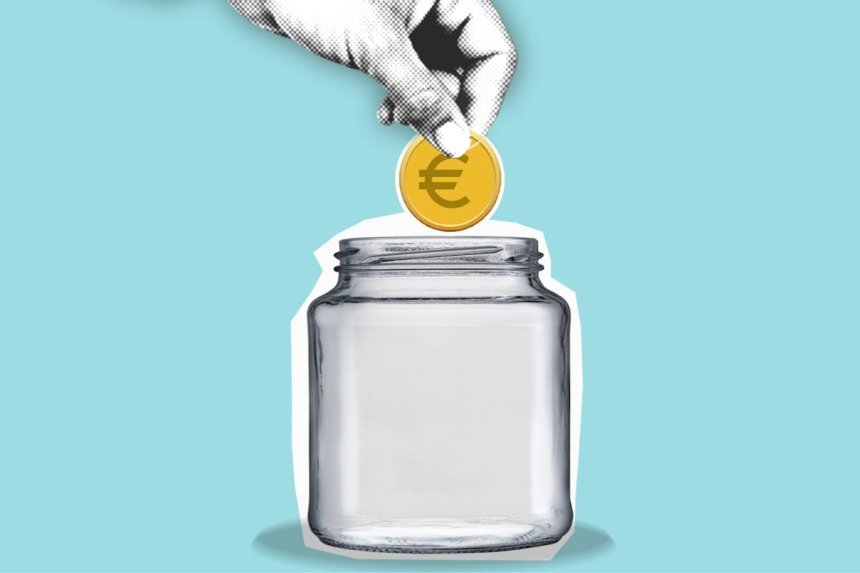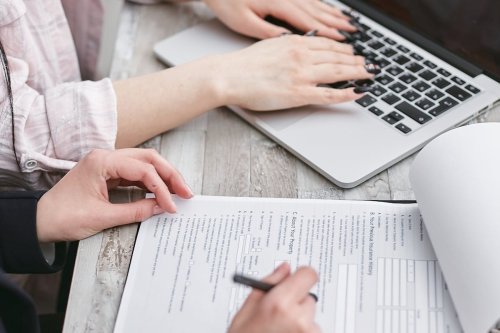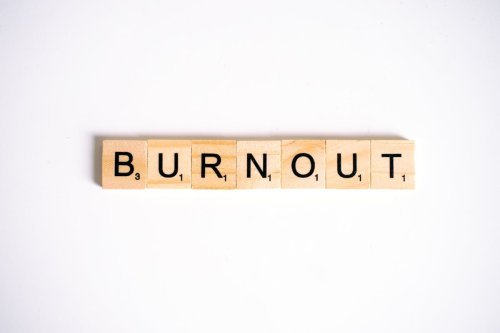Emergency Funds Aren’t Just for Emergencies—They’re Your Exit Plan from Chaos
This post isn’t a boring lecture on “saving 3 to 6 months of expenses.” You already know that advice. Instead, we’re going to dig into why an emergency fund is secretly your most powerful financial weapon—and how to build one even if your paycheck barely covers groceries.

That mindset—"I'll save when I have more"—is the reason most people spiral into debt when life throws a punch. Here's the uncomfortable truth: emergencies aren’t rare. They're guaranteed. The only unknown is when.
And if you think your job is stable, your health is fine, and your fridge will never go out mid-month, you're living in a bubble that reality will eventually pop.
This post isn’t a boring lecture on “saving 3 to 6 months of expenses.” You already know that advice. Instead, we’re going to dig into why an emergency fund is secretly your most powerful financial weapon—and how to build one even if your paycheck barely covers groceries.
Why “I’ll Just Use My Credit Card” Is a Financial Death Sentence

Let’s be blunt: your credit card is not your backup plan. It’s a trap with a smiley face.
Imagine this:
- You lose your job.
- Rent’s due.
- Your car won’t start.
- So you swipe the card.
Now you’re not only broke—you’re paying interest to stay broke.
Here’s the twist: debt isn’t just about money. It steals your peace of mind. Ever tried sleeping while your brain plays “Will I make rent next month?” on loop?
Emergency funds break that cycle. They buy time, dignity, and choices—three things you can’t put on a credit card.
The Real Reason Most People Don’t Build One? Shame and Denial.
Nobody likes feeling poor. So instead of facing their empty account, people hide behind distractions:
- “I’ll save next month.”
- “Things aren’t that bad.”
- “I deserve a break. I work hard.”
I understand. I've been there. Let's face it, though: hope is not a plan. Neither is acting. People with sound financial judgment don't wait for chaos to disprove their beliefs.
They expect it. Then prepare like ninjas.
How Much Should You Save? The Answer Isn’t What You Think
Forget the cookie-cutter “3 to 6 months of expenses” for a sec.
Let's deconstruct this in a way that makes sense.
Step 1: Know Your Bare-Minimum Monthly Cost
Not your full Netflix-subscription, sushi-on-Fridays lifestyle. I’m talking about:
- Rent/mortgage
- Groceries (basic)
- Utilities
- Insurance
- Minimum debt payments
Step 2: Build In Stages
Trying to save 6 months at once will feel impossible. Start here:
- Save $500 – This handles most minor emergencies (repairs, last-minute travel, etc.).
- Save 1 month of Survival Budget
- Build to 3 months
- Then aim for 6+ if you're self-employed or have inconsistent income.
One month saved is better than zero months planned.
Where Do You Keep It? (Spoiler: Not in Your Sock Drawer)
The best emergency fund is:
- Easy to access
- Hard to accidentally spend
- Separate from your regular account
Best Options:
- High-yield savings account (online banks like Ally or Marcus often offer higher interest)
- Money market account (slightly better rates with check-writing options)
- Cash envelope? Only if you’re super disciplined—and don’t live with a snack-stealing roommate
Avoid:
❌ Stocks (too risky)
❌ CDs (hard to withdraw fast)
❌ Tying it up in crypto (unless you want your emergency fund to disappear when Bitcoin sneezes)
“But I Can’t Save—My Income Is Too Low!”
Let’s bust this excuse right now.
If you can’t save $10 this month, what makes you think you’ll magically save $1,000 when your income increases?
It’s not about income. It’s about behavior.
Start with anything. $5 a week. Round up your debit purchases and stash the change. Sell one thing from your closet. Skip one takeaway meal.
What Happens When You Actually Use It?
The element that no one discusses is that utilizing your emergency fund might be frightening. like though you're failing.
But that’s the point. You’re supposed to use it.
Think of it like this:
Your emergency fund is not a decoration. It’s a parachute. When life pushes you off a cliff—job loss, illness, car breakdown—it catches you before you crash.
And here’s the cool part: Once you use it, you rebuild it. Simple.
No shame. Just strategy.
Bonus Trick: Label It Something Emotional
This sounds silly—but it works. Rather than calling your savings account the "Emergency Fund," consider:
- “Peace of Mind”
- “My Freedom Fund”
- “Break Glass Only”
Why? Because emotionally connecting to your money makes it stickier. You’re less likely to raid it for non-emergencies when the name reminds you of its real purpose.
Emergency Fund in 2025: The Safety Net You Can’t Afford to Ignore
The economy’s weird. Layoffs are common. Healthcare costs are insane. And side hustles aren’t always reliable.
If you’re relying on hope, a paycheck, or your credit limit to get by—you’re one unexpected bill away from a breakdown.
Emergency funds aren’t just for hospital bills. They’re for buying time when life demands hard decisions. They protect your mental health. Your goals. Your future.
So… Will You Start Saving Today—or Regret It Tomorrow?
It’s easy to scroll past this and say, “Yeah, good idea… someday.”
But someday turns into crisis real fast.
So let me ask:
Would you rather feel a little discomfort saving now—or a whole lot of panic later?
Your choice.
Let me know: What’s stopping you from building your emergency fund—and what’s the first step you’re going to take this week?
Share
What's Your Reaction?
 Like
0
Like
0
 Dislike
0
Dislike
0
 Love
0
Love
0
 Funny
0
Funny
0
 Angry
0
Angry
0
 Sad
0
Sad
0
 Wow
0
Wow
0













